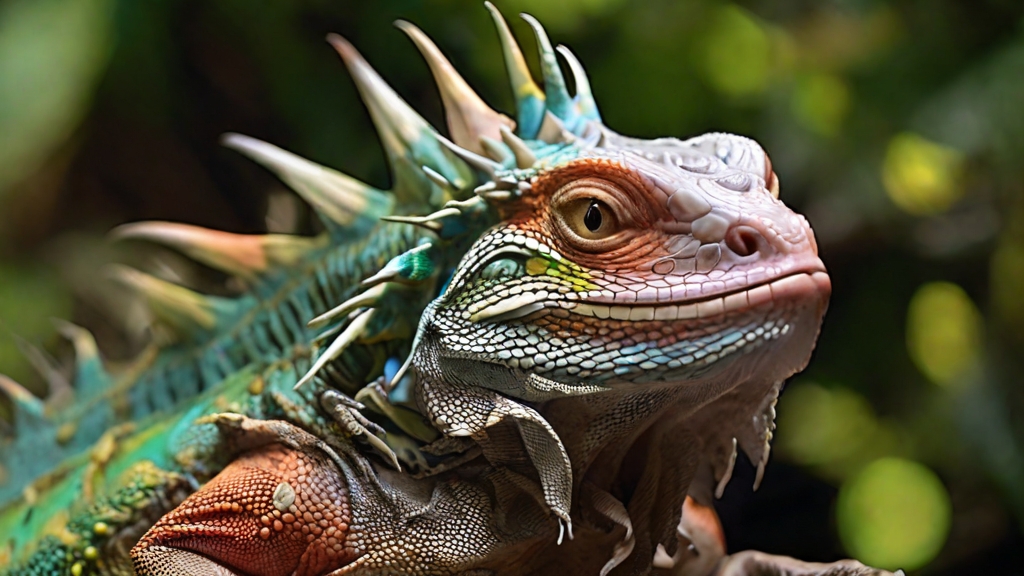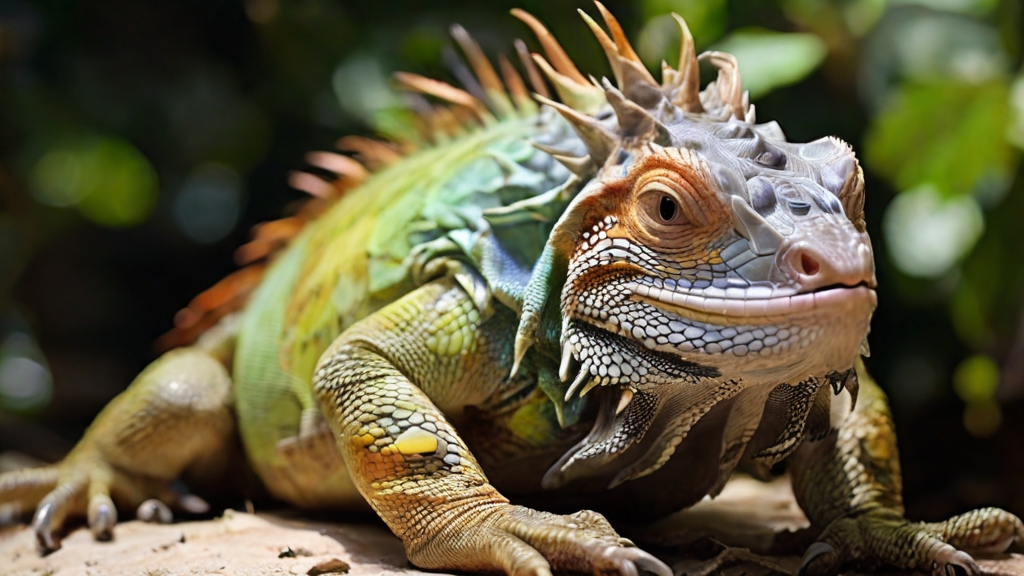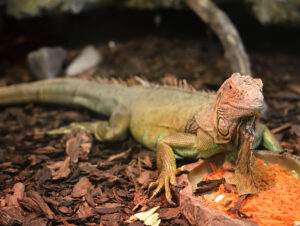Iguanas are fascinating reptiles that require a specific diet to thrive in captivity. As a responsible pet owner, it’s essential to understand what foods are safe and appropriate for your iguana’s health.
Onions, a common kitchen staple, may seem harmless to us humans, but can they be included in an iguana’s diet?
In this article, we will explore the topic of whether iguanas can eat onions and shed light on the potential risks and concerns associated with feeding onions to these reptiles.
Introduction
Iguanas are primarily herbivores, meaning they consume a plant-based diet. Their natural habitat provides them with a variety of vegetation to meet their nutritional needs.
However, when kept in captivity, it’s crucial to replicate their natural diet as closely as possible to ensure their well-being.
The Diet of Iguanas
Before delving into the topic of onions, let’s first understand what an iguana’s diet should consist of. A balanced diet for an iguana typically includes leafy greens, vegetables, fruits, and occasional supplements. These components provide the necessary vitamins, minerals, and fiber to support their growth and overall health.
Can Iguanas Eat Onions?
Why Onions May Be Harmful to Iguanas
Onions belong to the Allium family, which also includes garlic, leeks, and chives. These vegetables contain compounds such as organosulfides and thiosulphate, which can be toxic to iguanas. The ingestion of onions by iguanas can lead to a condition known as onion toxicity.
Potential Risks and Side Effects
Onion toxicity can have severe consequences for iguanas. The toxic compounds found in onions can damage their red blood cells, leading to anemia and potential organ damage. Symptoms of onion toxicity in iguanas may include weakness, lethargy, loss of appetite, drooling, and changes in urine color. In severe cases, it can even be life-threatening.
What Should Iguanas Eat?
Considering the potential risks associated with feeding onions to iguanas, it’s crucial to focus on safe and nutritious foods that promote their well-being.
Safe and Nutritious Foods for Iguanas
A balanced diet for iguanas should consist of dark, leafy greens such as kale, collard greens, and mustard greens. These greens are rich in calcium, which is essential for maintaining strong bones and preventing metabolic bone disease. Additionally, offering a variety of vegetables like bell peppers, carrots, and squash provides additional nutrients.
Fruits can be included in moderation, as they contain natural sugars. Examples of fruits suitable for iguanas include papaya, mango, and melons. However, it’s important to remember that fruits should only make up a small portion of their diet due to their high sugar content.
Signs of Onion Toxicity in Iguanas
It’s crucial for iguana owners to be aware of the signs of onion toxicity. If you suspect that your iguana has ingested onions or any other potentially harmful food, keep an eye out for the following symptoms:
- Weakness and lethargy: Your iguana may appear sluggish and lack energy.
- Loss of appetite: A decrease in appetite or refusal to eat may indicate a problem.
- Drooling: Excessive drooling or saliva production may occur.
- Changes in urine color: Onion toxicity can cause changes in urine color, often becoming darker.
- Pale gums: Check your iguana’s gums for paleness, which can indicate anemia.
If you notice any of these symptoms, it’s essential to seek veterinary care immediately. Prompt treatment can greatly increase the chances of a successful recovery.
Proper Feeding Practices for Iguanas
To ensure the health and well-being of your iguana, it’s important to follow proper feeding practices.
Importance of a Balanced Diet
A balanced diet is crucial for iguanas to thrive. It’s recommended to offer a variety of foods to ensure they receive all the necessary nutrients. Dark, leafy greens should make up the majority of their diet, with vegetables and fruits offered in moderation.
Feeding Guidelines and Tips
Here are some guidelines and tips to consider when feeding your iguana:
- Offer a variety of dark, leafy greens daily, such as kale, collard greens, and mustard greens.
- Include a mix of vegetables, such as bell peppers, carrots, and squash, to provide additional nutrients.
- Limit fruits to 10-15% of their overall diet and choose options with lower sugar content.
- Dust food with calcium and vitamin D3 supplements to ensure proper bone health.
- Provide fresh, clean water at all times for hydration.
Remember to monitor your iguana’s weight and overall health regularly. Adjust their diet accordingly to maintain a healthy body condition.
Other Foods to Avoid Giving to Iguanas
In addition to onions, there are other foods that should be avoided when feeding iguanas. These foods can be toxic or cause digestive issues. Examples include:
- Avocado: Avocados contain a substance called persin, which can be toxic to iguanas.
- Rhubarb: Rhubarb leaves and stems contain oxalates, which can be harmful if ingested in large quantities.
- Spinach and beet greens: These greens contain oxalates and should be given sparingly due to their calcium-binding properties.
- Citrus fruits: Citrus fruits are acidic and can cause digestive upset in iguanas.
FAQs
Can iguanas eat cooked onions?
No, iguanas should never be fed cooked onions or any form of onions. Cooking does not eliminate the toxic compounds that can harm iguanas.
Can iguanas eat onion leaves?
No, onion leaves contain the same toxic compounds found in the bulb and should be avoided.
Are there any onions that are safe for iguanas?
No, all varieties of onions, including red, white, yellow, and green onions, are harmful to iguanas.
What should I do if my iguana accidentally eats onions?
If your iguana consumes onions, it’s important to seek immediate veterinary assistance. Onion toxicity can be serious and require prompt treatment.




